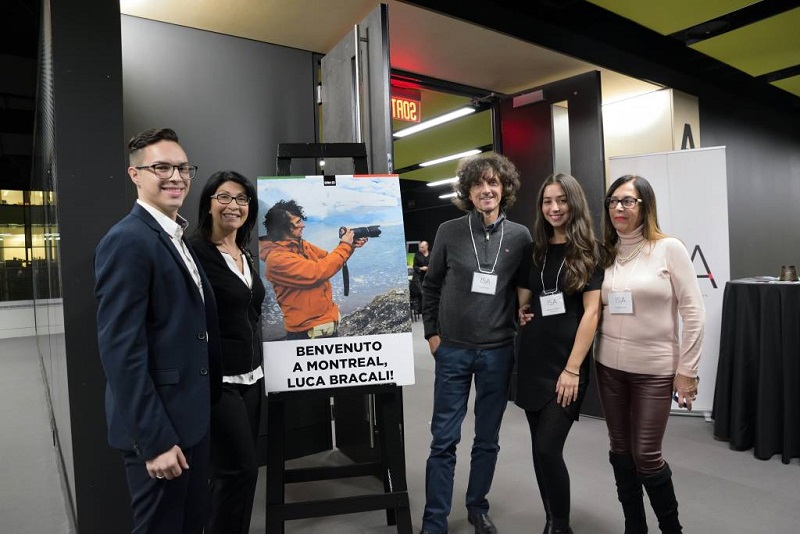Photojournalist, explorer and environmentalist Luca Bracali uses photography to help save our planet
Some educate in classrooms. Others, like Luca Bracali, an Italian photojournalist, explorer and environmentalist, aim to educate youth about global warming through a camera lens.
“My job is to try to save a bit of our planet,” said Bracali at a talk hosted by Concordia’s Italian Studies Association (ISA) on Nov. 6. “I am really in love with our planet because it belongs to everybody. It is the only thing that we need to share.”
Bracali wanted people around the world to understand the importance of the environment, and he chose photography as the medium because it is “the most international language of all,” he said.
Bracali’s love of photography started when he was a child. “When I was really young, I was really shy. I decided to start with photography [as an outlet].” His career began with photographing cars and fashion models, but he soon realized taking photos of material possessions was not fulfilling.
In 1991, when Bracali began travelling the world, he discovered his true mission—to help save the planet using photography. “I fell in love with this after my first trip,” he said. Since then, Bracali has traveled to 140 countries and worked for National Geographic. His photography focuses on capturing the natural world’s picturesque mountains, wildlife, northern lights, deserts, prairies and icebergs.

In 2003, Bracali traveled to Antarctica to visit the Vernadsky Research Base where a hole in the ozone layer was first discovered back in 1985. It was during this trip that Bracali decided he wanted to explore the topic of global warming and find ways to help protect the planet.
According to Bracali, one of his most challenging trips was a visit to the North Pole. “It’s something that I had done once in my life, and it’s the only trip I would not do twice.” He said even the simplest things, such as water to drink, were difficult to come by. “You don’t have anything to drink […] you have to melt and dig the snow,” he said. “As soon as you remove your gloves, you can get frostbites. You use fire to melt the snow and, finally, you can drink something.”
The greatest threat Bracali faced on that trip, however, was the possibility of encountering a polar bear. “You go to sleep with a gun,” he said. “If the bear enters your tent, you have to find the gun [in the dark].”
Bracali said the ultimate goal of his photographs is to show the danger our planet faces because of global warming. “I try to capture something related to ice-melting, [or] something that is there now that won’t be there anymore in 20 years, such as ice or polar bears,” he said.
When discussing the everyday habits people can change to help save the planet and reduce waste, Bracali emphasized the importance of conserving water. “For showers, maybe you can have two or three showers maximum per week,” he said. He also suggested people avoid long showers by turning off the water when using soap and only turning it back on to rinse off. “Water is a precious element,” Bracali added.
According to Giuliano Sandoval, president of Concordia’s ISA, the purpose of Bracali’s talk was to actively raise awareness about global warming. “We can make a difference, even in the smallest action. We all need to be concerned with our planet,” he said. “Things are changing, and global warming is happening. People need to be conscious of it.”
Olivia Venneri, the vice-president of finance for Concordia’s ISA, said the talk was part of the association’s initiative to advocate for the environment and educating young people. This included going “to elementary schools, high schools and CEGEPs to talk about the environment.”
During his talk, Bracali also offered advice to aspiring photographers. “Be ambitious but very humble,” he said. “Have a project on your mind and try to develop it as much as you can. With technology nowadays, everything is so easy, so you must keep a very focused project on your mind.”
He later told The Concordian: “My goal is trying to teach young people how to preserve and take care of our planet. I want to go to elementary [schools] and to universities to show [students] the beauty of our planet,” he said. “It’s your planet. Please open your eyes.”




